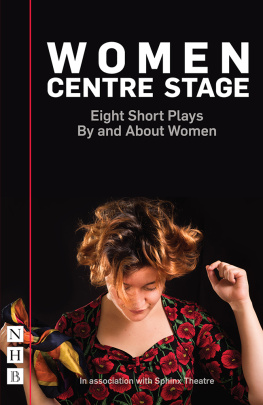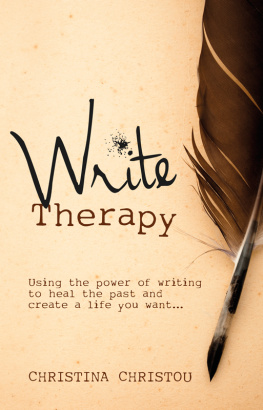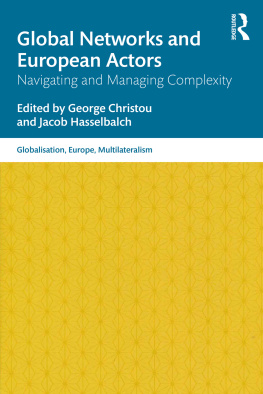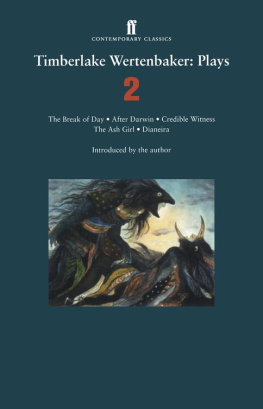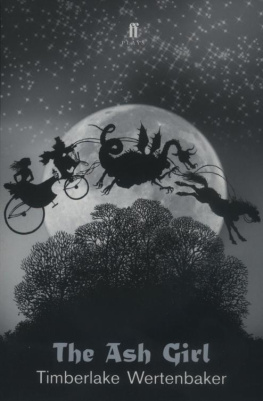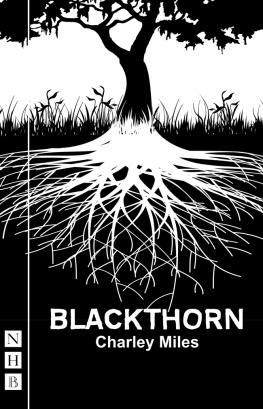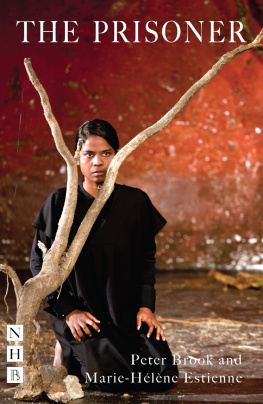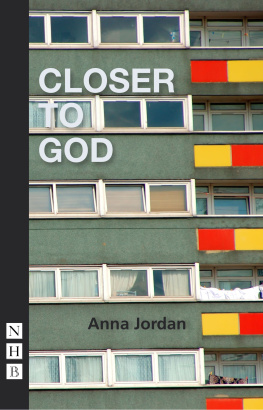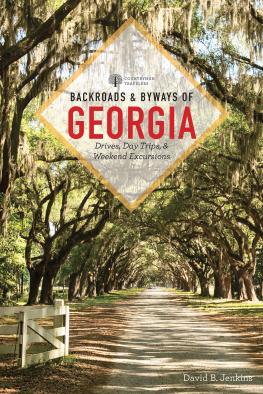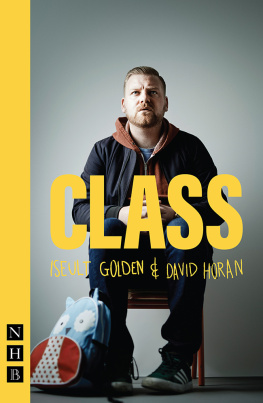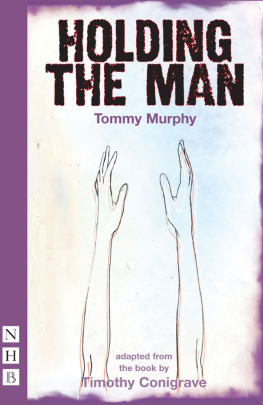WOMEN
CENTRE STAGE
Eight Short Plays By and About Women

www.nickhernbooks.co.uk | 
www.sphinxtheatre.co.uk |
Contents
For My Comrades-in-Arms
Dame Rosemary Squire DBE and Jules Wright
And for Louisa, Tiffany, Helen, Ros,
Isabel, Lisa, Ben and Joanna.
Introduction
Sue Parrish
Women cant be artists, women are mothers
Sian Ede, Arts Council officer, 1991
The eight plays in this volume first saw the light of day in the Women Centre Stage Festival. They were chosen to show the range, depth and richness of the work that can be created in a celebration of women artists. The Women Centre Stage Festival is an exciting cultural project designed to address and combat womens exclusion from UK theatre. Sphinx Theatre, founded as the Womens Theatre Group in 1973 and renamed in 1990, has been in the vanguard of advocating and inspiring women in the arts through productions, conferences and research for four decades. As a kind of feminist-theatre think tank, we initiated the breakthrough Glass Ceiling conferences in the 1990s at the National Theatre, and more recently from 2009, four Vamps, Vixens and Feminists conferences; while landmark productions include Pam Gems The Snow Palace and April De Angelis modern classic, Playhouse Creatures.
The conferences were a forum for gathering a UK-wide network and forming a sense of solidarity among women in the arts who are often isolated. Leading women artists, academics and journalists shared their professional experiences with packed audiences. For ten years running we hired the NTs Cottesloe Theatre for the day for the Glass Ceilings, and in 2009, thanks to the good offices of the Literary Manager Sebastian Born, we took over the Olivier Theatre for Vamps, Vixens and Feminists, a sign of dawning consciousness. Many women recount moments of inspiration from these talkshops, and the latest spin-off, Nottinghams The Party Somewhere Else, took its name from a passing reference of mine to the feeling of exclusion women feel.
However, by 2012 I was haunted by a feeling of extreme Groundhog Day, bearing in mind that I had been involved in campaigning for equality for women in the theatre for over thirty-five years without feeling wed made much progress. Yes, there had been some improvement since then for women directors and writers, but the figures for female actors remained stubbornly at around 35%. The most recent figures show women writers with work produced at 28%, directors at 36%, and actors at 39%, but nowhere approaching parity for the 51% of the population who are the only majority with the status of a minority. The data shows that out of one hundred and sixty-eight Artistic Directors of Arts Council Englands National Portfolio clients, only thirty-three are women, and they control only 13% of the total ACE theatre budget. Women Centre Stage was created to address this exclusion, at a time when the murmuring for quotas is ever louder.
Sphinx Theatre has always had a feminist vision committed to changing the cultural landscape. We were convinced that if women artists were given space and support they could develop and expand the range of representation of women onstage beyond the endemic cultural stereotypes of wife, mother, mistress, daughter, sister or girlfriend to the male protagonist. We were confident that women could write state of the nation plays, away from the domestic arena. We were fired by the passion and the quality of artists we met through our discussions. Finally, in 2014, after several rejections, the Arts Council made an award for the project.
Women Centre Stage, Heroines, began with an invitation from the NT in 2014 to occupy the Temporary Theatre Space (aka the National Theatre Shed) on the South Bank for a weekend in 2015. We had to move fast to get the funding and the programme in place. This offer kickstarted five months of writers workshops, submissions, regional collaborations, panel discussions and an initial hothouse meeting which brought together women and men across the arts and education. We developed a writers programme of prompts and provocations; examining classic texts alongside contemporary responses; and salon discussions exploring the creation of female characters who have agency, autonomy within the story, authority as protagonists, and authenticity as complex characters. The Sphinx Test (a tool we developed inspired by the film industrys Bechdel Test) and an alternative way of thinking about a female protagonist, took shape alongside it is reproduced on the inside cover of this book. The festival exceeded all our objectives, and delivered the essential elements of any work of art: surprise and enlightenment!
The Temporary Theatre space was a provisional, rough and neutral space admirably suited to the festival spirit. The event was a euphoric success which brought a new and enthusiastic demographic into the NT for a range of pieces; including for Kali Theatres searing dissection of oppression in Twelve Women; Hot Tubs and Trampolines heart-stopping examination of grief in Mind The Gap; Lucinka Eislers mesmerising presentation of old age in A Life in 22 Minutes; the shocking expos of the power of social media, Boys Will Be Boys from Charlotte Josephine; and the chilling verbatim play Islands by Emma Jowett, documenting violent stalking. Bolton Octagon brought two elegant and elegiac pieces from Timberlake Wertenbaker: What is the Custom of Your Grief? and Memory of Gold. There were wonderful comedic pieces including Prepper by Caroline Moran, brilliantly performed by Abi Tedder; and Karen Featherstones school-gate farce, The Real PTA. Three of the most stunning minutes were created by Camilla Harding, in her Guy is a Guy, inhabiting a Stepford Wife dancing to Doris Day, and morphing into a slobby young man before our eyes. To crown the day there were five twenty-four-hour plays, brilliantly diverse, from Roy Williams, April De Angelis, Barney Norris, Rachel De-Lahay and Rona Munro (who emailed her script from 30,000 feet en route across the Atlantic). But who could forget Tricia Kelly as Barneys unctuous C of E Bishop?
With a days preparation, the NT crew worked miracles to enhance with sound and lighting twenty-four plays, created by seventy-one actors, twenty-four directors and twenty-six writers. It was an exhilarating experimental festival, bringing together experienced playwrights and new writers who were graduating from workshops, pub stages and studio theatres; creating dynamic plays with women as the focus; enticing 1,000 people through the doors; and turning the world upside down!
The second Women Centre Stage Festival, Powerplay, was held in November 2016, at the warm invitation of Edward Hall, Artistic Director of Hampstead Theatre. This offered the challenge and opportunity of a sophisticated main stage, a studio and a rehearsal space, facilitating an expanded festival with a range of performances, and with enhanced funding. We were concerned that the presentations should be as finished as possible in this super-modern theatre. Several pieces from the NT were further developed, and have since gone on to tour and be performed at other events. Again we were delighted to bring leading writers and directors together with emerging talents, through our writers group, and the twenty-four-hour plays. We were able to offer extended rehearsal for two major new pieces Wilderness

